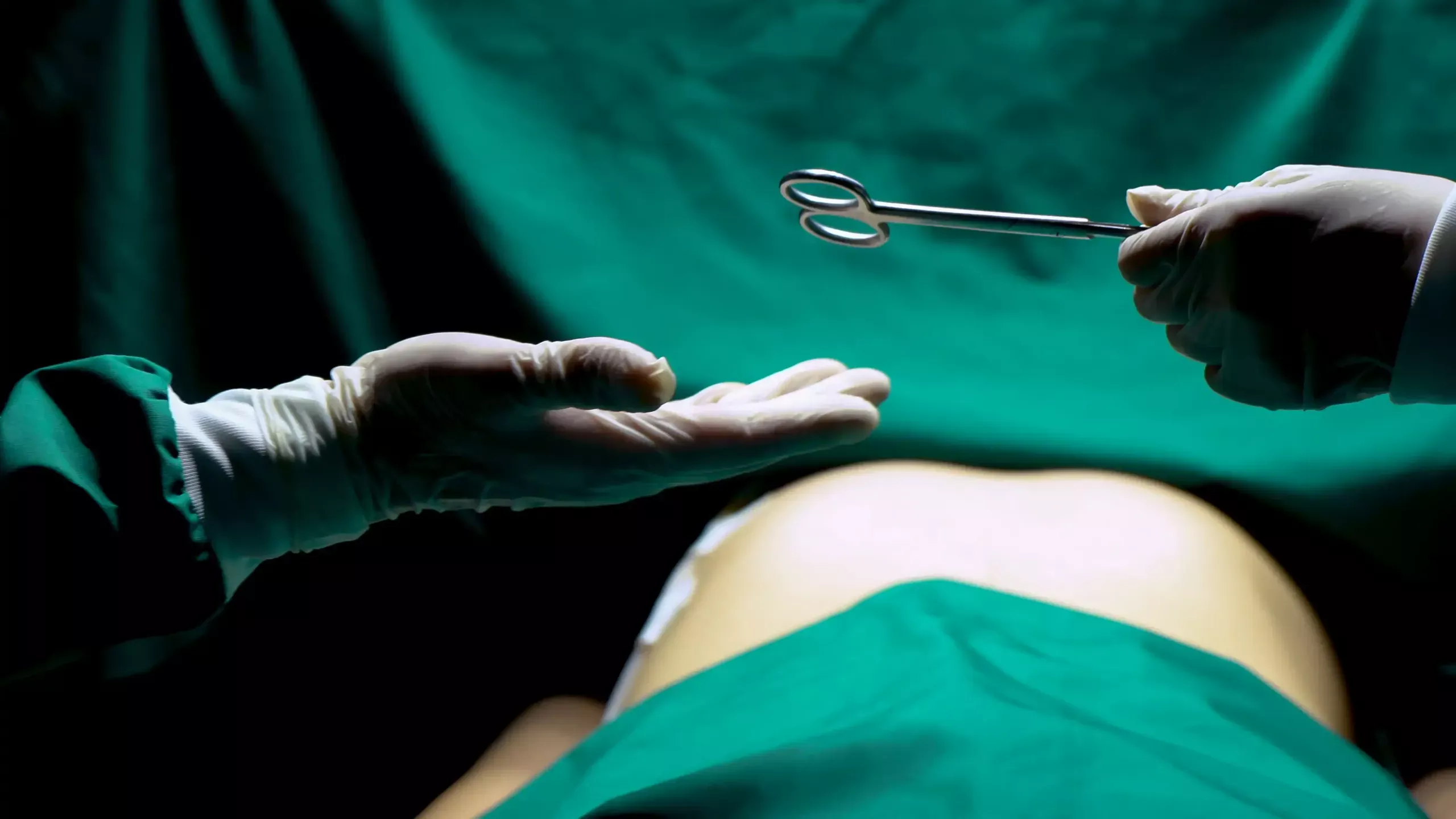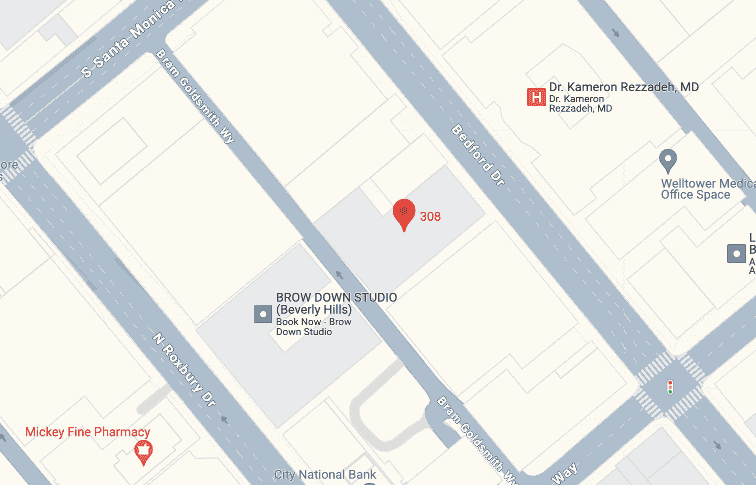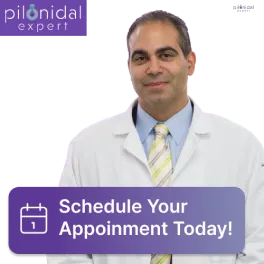Pilonidal cysts are a common skin condition that affects the area near the tailbone at the top of the buttocks. These cysts form when hair follicles become clogged and infected, resulting in a painful abscess. Sometimes, these cysts may even require pilonidal cyst removal surgery.
In this article, we will discuss various options for pilonidal cyst removal surgery, recovery time, and important considerations for pilonidal cyst removal surgery.
The Role of a Colorectal Surgeon
A colorectal surgeon’s role in the treatment of pilonidal cysts is critical for ensuring the best possible care and outcomes for patients. Colorectal surgeons are experts in the treatment of disorders affecting the colon, rectum, and anus, including pilonidal cysts. Here are some of the most important aspects of their job:
Specialized Training: Colorectal surgeons undergo extensive training and education specifically focused on conditions and surgical procedures related to the colon, rectum, and anus. They learn about the anatomy, physiology, and pathology of these areas, including pilonidal cysts. This specialized training allows them to correctly diagnose and treat pilonidal cysts.
Diagnostic Evaluation: When patients present with a pilonidal cyst, colorectal surgeons perform a comprehensive diagnostic evaluation. This usually entails a thorough review of the patient’s medical history, a physical examination, and possibly additional tests such as imaging studies. Colorectal surgeons can accurately diagnose the cyst and determine the best treatment approach by conducting a thorough examination.
Treatment Planning: Colorectal surgeons play a critical role in developing individualized treatment plans for pilonidal cysts. They take into account a number of factors, including the size and location of the cyst, the severity of symptoms, the patient’s overall health, and their preferences. Based on these factors, the surgeon will recommend the best course of treatment, whether conservative management, minimally invasive procedures, or surgical intervention.
Surgical Expertise: When surgical intervention is required, colorectal surgeons excel at performing the necessary procedures. They are knowledgeable about a variety of surgical techniques for pilonidal cysts, such as incision and drainage, excision and closure, and more advanced procedures such as flap reconstruction or laser hair removal. Colorectal surgeons are trained to navigate the complexities of cyst anatomy and ensure complete removal while minimizing complications.
Postoperative Care: After surgery, colorectal surgeons provide comprehensive postoperative care to promote healing, minimize discomfort, and prevent complications. They closely monitor patients’ progress, prescribe appropriate pain management strategies, and provide wound care and hygiene instructions. Regular follow-up visits enable the surgeon to assess the healing process, address any concerns, and make any necessary changes to the treatment plan.
Recurrence Management: Pilonidal cysts have a tendency to recur, and managing recurrence is an integral part of a colorectal surgeon’s role. If a cyst returns or persists despite initial treatment, the surgeon will reassess the situation, investigate potential contributing factors, and recommend appropriate interventions to reduce the likelihood of recurrence. This could entail revising the surgical technique, changing lifestyle habits, or looking into alternative treatment options.
Finding a Colorectal Surgeon for Pilonidal Cyst Treatment
There are several steps you can take to find a qualified professional who can provide expert care when looking for a colorectal surgeon who specializes in pilonidal cyst treatment. Here’s a more in-depth explanation of how to find a colorectal surgeon for pilonidal cyst treatment:
Research and Referrals: Begin by conducting extensive online research to identify colorectal surgeons in your area who have treated pilonidal cysts. Look for colorectal surgery departments in reputable medical institutions, hospitals, and clinics. Consider getting referrals from primary care doctors, friends, or family members who have had a good experience with a colorectal surgeon. Recommendations from reliable sources can be useful in locating a skilled specialist.
Online Directories and Resources: Make use of online directories and resources that are specifically designed to assist patients in locating healthcare professionals. Websites like Healthgrades, Zocdoc, and Vitals provide detailed information about medical specialists like colorectal surgeons. Patient reviews, ratings, contact information, and information about the surgeon’s background and expertise are frequently included on these platforms. Filter your search with relevant keywords like “colorectal surgeon pilonidal cyst near me” to find professionals who specialize in pilonidal cyst treatment.
Professional Associations: Look into membership in colorectal surgery-related professional associations. The American Society of Colon and Rectal Surgeons (ASCRS), for example, is a group of colorectal surgery specialists. Their website includes a searchable directory of members, allowing you to find colorectal surgeons in your area who specialize in pilonidal cysts.
Hospital or Clinic Websites: Visit the websites of local hospitals or clinics known for providing excellent colorectal surgical care. These websites frequently include directories or search functions that allow you to find surgeons based on their specialty. Examine the surgeons’ qualifications, experience, and specific areas of expertise in pilonidal cyst treatment. Many hospital websites also include patient testimonials and medical staff profiles.
Consultation and Evaluation: Once you’ve narrowed down your list of potential colorectal surgeons, set up consultations to assess their expertise and suitability for your specific needs. Inquire about their experience treating pilonidal cysts, preferred treatment approaches, and success rates during the consultation. Before beginning treatment, it is critical to feel at ease and confident in the surgeon’s abilities and communication style.
Insurance Coverage and Logistics: Before making a decision, find out if the colorectal surgeon you’re thinking about seeing accepts your insurance plan. Contact your insurance company to confirm coverage and determine any out-of-pocket expenses. Consider practical factors such as the surgeon’s practice location, appointment availability, and any necessary logistical arrangements for the surgery and post-operative care.
Pilonidal Cyst Surgery Options
Surgery is frequently recommended for pilonidal cysts, especially when the cyst becomes recurrent or causes severe symptoms. Colorectal surgeons use a variety of surgical techniques depending on the characteristics of the cyst and the patient’s condition. The following are the two primary surgical options for pilonidal cysts:
Incision and Drainage: An incision is made to drain the cyst and remove any infected material. It relieves symptoms temporarily but may not prevent recurrence.
Excision and Closure: This surgical technique involves removing the cyst completely, including the sinus tracts and infected tissue, followed by wound closure. Excision and closure procedures have a lower recurrence rate than incision and drainage procedures, making them the preferred option for the majority of patients.
Also See: Pilonidal Cyst Removal: What Are the Benefits and Risks?
Factors Influencing Pilonidal Cyst Recurrence
Pilonidal cysts are notorious for recurring, which frustrates both patients and surgeons. Understanding the factors that contribute to recurrence, on the other hand, can help guide treatment decisions and preventive measures. The following are some important factors that influence pilonidal cyst recurrence:
Irritation of Hair Follicles: Pilonidal cysts are frequently caused by irritation of hair follicles, which causes inflammation and cyst formation. Proper hair removal techniques and hygiene practices can help to reduce hair follicle irritation and recurrence.
Genetic Predisposition: Research suggests that genetic factors may play a role in the development and recurrence of pilonidal cysts. Patients with a family history of pilonidal cysts may be at a higher risk of recurrence and will need to take more precautions.
Infection Control and Wound Healing: Effective wound care and infection control are critical in preventing recurrence. Patients should carefully follow their surgeon’s instructions, such as keeping the wound clean, using prescribed dressings, and avoiding activities that may interfere with the healing process.
Modifications to One’s Lifestyle: Certain lifestyle factors, such as prolonged sitting or excessive pressure on the tailbone area, can contribute to cyst recurrence. To reduce the risk of recurrence, patients are advised to make necessary lifestyle changes, such as using cushions or taking frequent breaks from sitting.
Find the Best Colorectal Surgeon Pilonidal Cyst Near Me
Take action right away and seek specialized care from Pilonidal Experts. Regain your confidence, comfort, and freedom from pilonidal cysts. For long-term success, rely on their expertise and cutting-edge treatments. Get in touch with a colorectal surgeon pilonidal cyst right away to reclaim your health!








